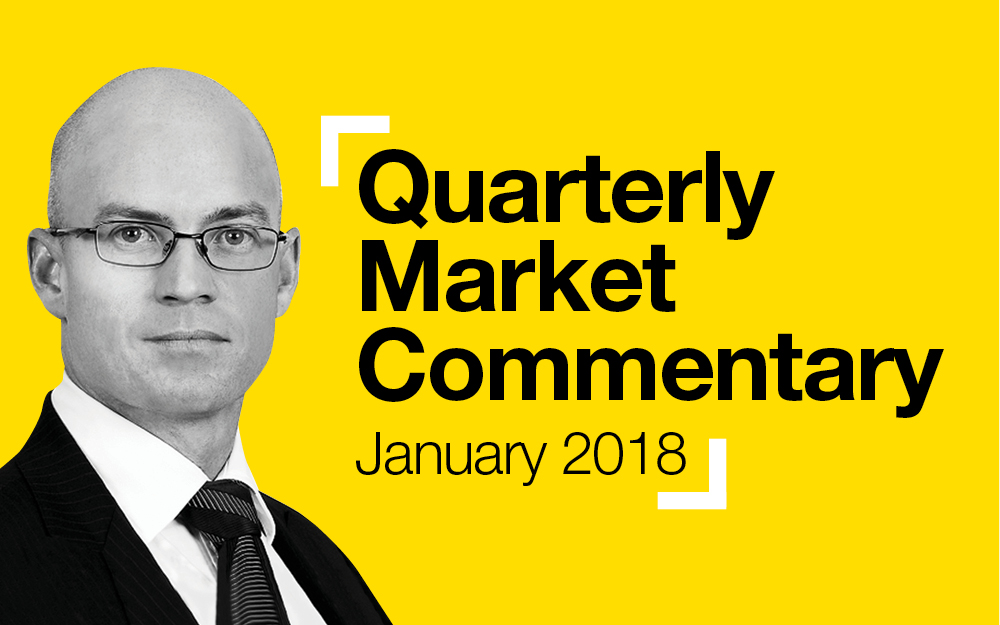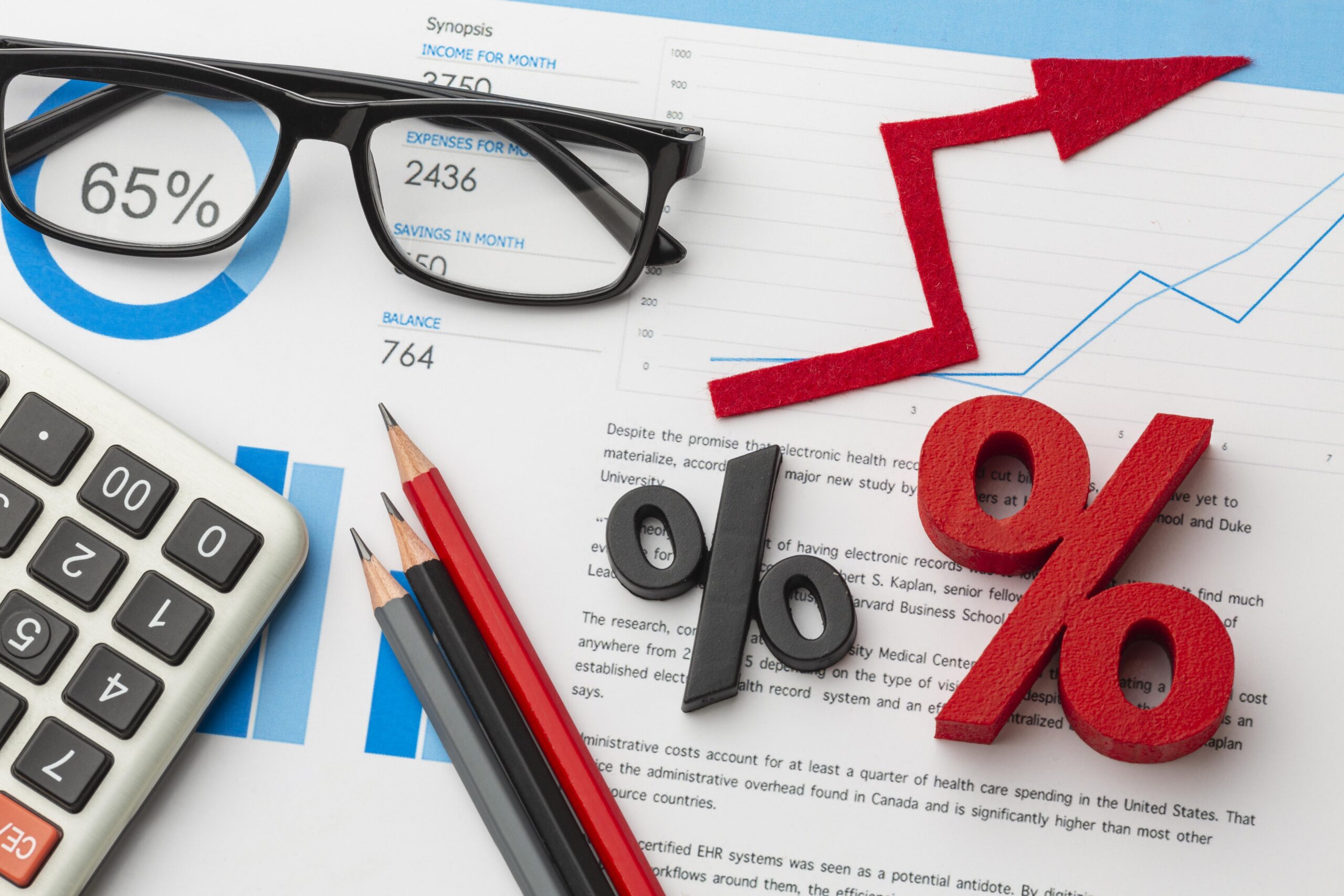
This article was prepared by Michael Furey, Principal of Delta Research & Advisory, on behalf of the HPartners Group.
Global Economy
The global economy improved during 2017 supported by continued loose monetary policy (low interest rates and/or quantitative easing). Other supporting factors for improved economic conditions included the continued steady reduction in unemployment levels across all major economies and expectations of accommodative fiscal policy from the Trump administration in the United States. Chinese economic growth has also been stronger than originally expected for 2017.
Whilst there is still significant room for improvement in Europe, the United States and Japan have unemployment levels that traditionally indicate near full employment, and combined with relatively low global wages growth it is likely inflation will remain subdued. Whilst inflation has picked up a little in the United States and United Kingdom, unless the global corporate sector increase employment demand, there is still little to suggest inflation will significantly increase in the short term. This is supported by the broader demographic trends in developed markets (i.e. ageing populations) and the continued high debt levels everywhere.
Global Markets
Whilst global economic growth has improved there are few expectations of a return to pre-GFC high levels, and combined with continued low inflation, interest rates are expected to stay low. If interest rates do increase, and they are expected to increase globally, rises are likely to be small and slow.
Stable inflation, continued low interest rates, and lower unemployment have resulted in strong confidence in equity markets which have continued their very low volatility and march forward. This has resulted in very high equity market valuations, particularly in the United States. Whilst momentum is a very powerful force in financial markets, the high valuations should set investor expectations for low returns over the coming years.
Global Risks
Geopolitical risks are at the fore with tensions between North Korea and United States being played out on Twitter and via demonstrations of force by North Korea launching inter-ballistic missiles across Japan and South Korea.
Talks of impeachment of Donald Trump are a daily discussion with numerous unknowns surrounding the Mueller investigation and how involved Trump is in the Russian election meddling.
Otherwise, lurking in the background are the continued high debt levels at government and household levels combined with highly valued asset prices that a small price correction could snowball into a bigger one. Major market corrections are often from left-field risks that are not known until they’re upon us.
Australian Economy
Australia’s economic growth continues to be positive though below it’s long term historic trend. That said, the Reserve Bank has made the call that the economy has pretty much completed its transition from the end of the Resources investment boom, and the economy is now benefiting from other sectors. The continued positive growth can thank the significant reduction in the Australian dollar which has assisted our exports, tourism, and manufacturing. Despite rhetoric over the years that the Australian government was reducing debt levels, the opposite has occurred and government debt is now at a record ~$500billion, but this additional spending has also been a major contributor to local economic growth.
Unemployment continues to be steady at 5.4% and like the rest of the world there appears to be few signs of wages growth. Survey results suggest employment growth may improve in 2018.
The most recent inflation result was 1.8% and this continues the trend of low inflation in recent years and still below the Reserve Bank’s target of 2 to 3%.
Australian Markets
Low inflation has kept the Reserve Bank’s cash rate at 1.5% and the continued low inflation has interest rates staying low for some time. Recent positive news around employment and global improvement has factored in one potential 25bps rise during 2018 and many economists don’t expect this to occur until later in the year.
Whilst Australian equity markets have underperformed global markets during 2017, valuations do appear more attractive, and assuming Chinese economic risks do not increase, augurs well for long term returns. Of course, this also assumes global markets are not surprised with negative news given the usual high correlation in performance.
Australian Risks
Sydney and Melbourne residential house prices have been concerning for some time and recent data suggests they may be starting to unwind. Given household debt levels are at record high levels this could be a concern to local economic growth, particularly if prices tumble faster than anticipated.
The Australian economy will always have the risks associated with a successful China purchasing our resources, so any surprising decline in Chinese growth, and/or commodity prices will be a strong negative… certainly to the Australian government’s budget position.
An interest rates rise, or a series of them, may increase any wind-down of housing prices putting the household budget and its high debt levels under pressure.
Latest News Articles
Back to Latest News
RBA Holds Rates Steady as Signs of Cooling Emerge

Budgeting on a Rollercoaster Tradie Income


